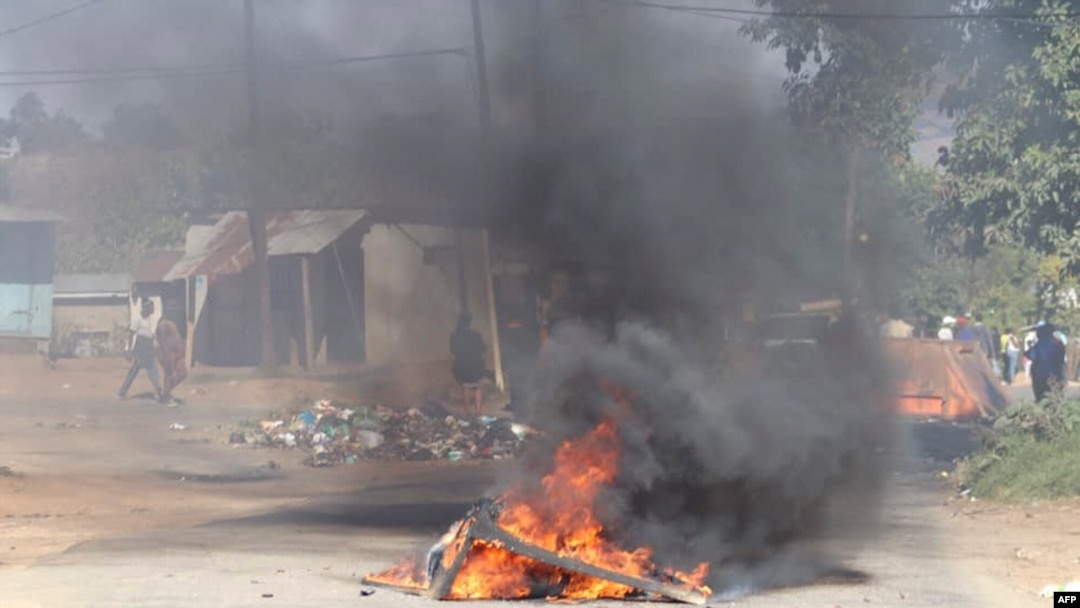In a newly release report, the Human Rights Commission in Eswatini says it found more people were killed in pro-democracy protests in June than official records show.
VOA’s Peter Clottey spoke with Sabelo Masuku, the head of the commission, who says they are calling on authorities to investigate the circumstances behind the ongoing political unrest in Africa’s last absolute monarchy.
This interview has been edited for clarity and brevity.
VOA: How did this new report new report come about?
Masuku: We just wanted to get some verification because there were quite a number of different reports from the government basically speaking about 27 deaths, civil society who are speaking about 70 deaths and international organizations were basically speaking about dozens, not being specific. So we thought as a human rights institution, independent, we can basically then make a verification, and they have a record of what our findings were.
VOA: The figures you have about that deaths, those detained, those injured during the political unrest in June reflect the same figures that officials released.
Masuku: No, it does not. So the government spoke about 27 [deaths], but we verified and got that it was 46 deaths. So we discovered that, for example, the police did not visit hospitals for some reason. So there is a discrepancy between the official numbers that were released by the government and our own reports.
VOA: What is the stance of your organization in the call for political reforms?
Masuku: So, there is a recommendation that does deal with the basic rights, these are the rights that deals with the right to assemble, the right to demonstrate and all that. When it comes to the MPs that are detained, as a human rights commission, our mandate then becomes constrained because is a provision that states that once a matter is now before a court of law, the Human Rights Commission cannot from that point onwards investigate or interfere with a matter that is before the courts.
VOA: So what were the major recommendations from this report?
Masuku: The first key important one is that the prima facie, on face of it, there were people that were arrested, there were people that were injured, there were people that died. And as such, we recommended that the government of the kingdom os Eswatini ought to make sure there is an investigation to find the root cause of this civil strife. That's the first one. The second one being that an independent body — it could be the commission by the way — must actually be put in place to make sure that there is a deeper investigation. You get the complainants to come in place their cases, and they implicate people who become defendants who then called the defendants to make their case. And then after you analyze the situation, you are then able to apportion blame.
VOA: Why is your report not apportioning blame when people are peacefully protesting calling for political reforms? Why are you not defending the fundamental rights of the citizens to ask for what they want?
Masuku: So if you read that report, it does state the methodology of the commission and also states the limitations of this report. So it must actually be read within the confines of its limits. And one of the limitations that is there is to basically say that the capacity of this commission was not able to actually do a thorough investigation. We believe that it must be the duty bearer that takes the responsibility. That is why we want to place this report to parliament because it must actually place the duty bearer into a position where a fully fledged, fully capacitated, with all the terms of reference being taken and given to the commission by the state so that it can actually have the full might of execution afterwards.


